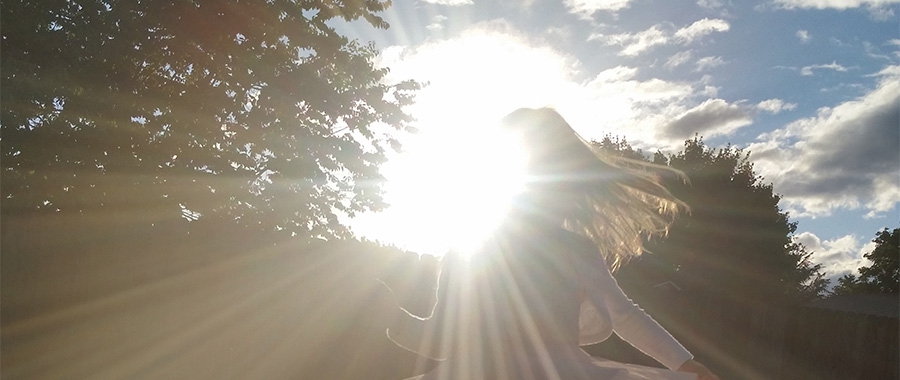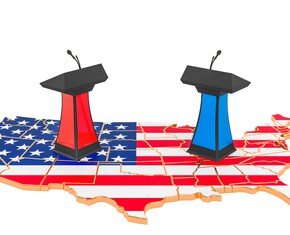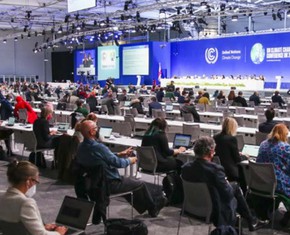The views expressed in our content reflect individual perspectives and do not represent the authoritative views of the Baha'i Faith.
More than ever before I find myself drawn to the prayer Abdu’l-Baha revealed in 1916 for the Baha’is of the United States and Canada, commonly known as the “Fire of War Prayer.”
In that prayer, written after Canada (as a Dominion of Great Britain) had entered World War I and a year before the United States did, Abdul-Baha minced no words in realistically describing the terrible condition of the world:
O God, my God! Thou seest how black darkness is enshrouding all regions, how all countries are burning with the flame of dissension, and the fire of war and carnage is blazing throughout the East and the West. Blood is flowing, corpses bestrew the ground, and severed heads are fallen on the dust of the battlefield. – Abdu’l-Baha, Baha’i Prayers, pp. 180-183.
Today, whether through actual armed conflict, political oppression, or the result of social inequalities, the self-inflicted suffering of humanity has become evident worldwide – even without a global conflagration:
O Lord! Wars have persisted. Distress and anxiety have waxed great, and every flourishing region is laid waste.
O Lord! Hearts are heavy, and souls are in anguish. Have mercy on these poor souls, and do not leave them to the excesses of their own desires. – Ibid.
Abdu’l-Baha’s prayer goes on to describe the human condition that has caused or resulted from the calamities we have perpetrated on ourselves. Given the waywardness of our collective thoughts and actions, we should expect chastisement and condemnation. Instead, Abdu’l-Baha implored God on our behalf:
O Lord! Have pity on these ignorant ones, and look upon them with the eye of forgiveness and pardon. Extinguish this fire, so that these dense clouds which obscure the horizon may be scattered, the Sun of Reality shine forth with the rays of conciliation, this intense gloom be dispelled and the resplendent light of peace shed its radiance upon all countries. – Ibid.
The first time I read this prayer it floored me with the love, forgiveness and compassion that immediately followed the description of the carnage our hands have wrought.
So in these troubled times I ask myself: if God’s response to horrendous human behavior is one of love and forgiveness, then what am I to do when faced with those who promote racism, cruelty, war, desecration and tyranny? The model we receive in this prayer is a daunting one. For me it requires an extreme and repeated effort to refrain from returning hatred and cruelty with anger, desecration with condemnation, tyranny with fear. I don’t always succeed.
But anger, condemnation and fear can be transmuted into action. Abdul-Baha’s prayer offers us the remedy for all these ills:
O Lord! Make manifest in Thy lands humble and submissive souls, their faces illumined with the rays of guidance, severed from the world, extolling Thy Name, uttering Thy praise, and diffusing the fragrance of Thy holiness amongst mankind.
O Lord! Strengthen their backs, gird up their loins, and enrapture their hearts with the most mighty signs of Thy love.
O Lord! Verily, they are weak, and Thou art the Powerful and the Mighty; they are impotent, and Thou art the Helper and the Merciful.
O Lord! The ocean of rebellion is surging, and these tempests will not be stilled save through Thy boundless grace which hath embraced all regions.
O Lord! Verily, the people are in the abyss of passion, and naught can save them but Thine infinite bounties. – Ibid.
In this potent prayer, Abdu’l-Baha asks God to diffuse the fragrance of His holiness amongst mankind, enlighten hearts with the light of guidance, and shine the lamp of God’s love on all countries. He tells us that only through God’s boundless grace which embraces all regions and with God’s infinite bounties can the condition of the world actually transform.
Moreover, he gives us specific guidance on how to prepare ourselves for the task of diffusing God’s holiness. We must first be humble and submissive souls, acknowledge our weakness and impotence, illumine our faces with the rays of God’s guidance, be severed from the world, and strengthen our backs in our work for peace and harmony. With hearts enraptured with the most mighty signs of God’s love, we can then extoll God’s Name, utter God’s praise, diffuse God’s fragrances and promulgate God’s teachings.
Clearly, love must become the basis informing all of our actions. For the love of God and with the recognition of our own humility we rise up, not out of a belief in our own power to heal others or show them the right way, but in love for all humanity. With hearts filled with God’s love, we can kindly and peacefully interact with our fellow beings. Ideally, our loving hearts leave no room for anger and fear as we become aware of additional atrocities or come face to face with hatred.
Needless to say, this represents a very tall order, but one I hope to continually strive for.
Yes, given our human weakness and impotence, that’s a daunting task – but Abdul-Baha said that we will not be alone. The prayer promises that God will:
Be Thou their companion in their loneliness, their helper in a strange land, the remover of their sorrows, their comforter in calamity. Be Thou a refreshing draught for their thirst, a healing medicine for their ills and a balm for the burning ardor of their hearts. – Ibid.
Finally, the prayer ends with some specific attributes of God that affirm redemption can happen for humanity. They remind me that “God is the Most Generous, the Lord of grace abounding” … “the Compassionate and the Merciful.”
With a reliance on that compassion and mercy, and with a renewed sense of hope, I look for how I may serve the Baha’i vision of a united, peaceful world. The vastness of that task no longer immobilizes me or fills me with despair, since we will achieve it through God’s power and in accordance with God’s plan. When tempted to rejoice in the downfall of the oppressor, I will strive to replace my own animosity with compassion, since the only way I can spread God’s love is to hold it in my own heart.
















Comments
Sign in or create an account
Continue with Googleor